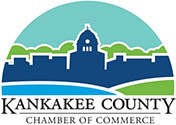ComEd, Argonne Team Up to Study the Impact of Climate Change on the Power Grid
312-394-3500 FOR IMMEDIATE RELEASE
ComEd, Argonne Team Up to Study the Impact
of Climate Change on the Power Grid
First Study Launched in Concert with EPRI’s Climate READi™: Power Initiative
CHICAGO (May 25, 2022) – ComEd, in partnership with the U.S. Department of Energy’s (DOE) Argonne National Laboratory’s Center for Climate Resilience and Decision Science, today announced it is launching a comprehensive Climate Risk and Adaptation Study, which will examine the impact of changing weather due to climate change, including sustained heat and flooding risk, on the design and performance of the power grid in the region. This is the first study to be launched in concert with the Electric Power Research Institute’s (EPRI) Climate READi™: Power (REsilience and ADaptation initiative), a recently announced, three-year global program on climate change risk. ComEd’s parent company, Exelon Corporation, is one of 13 founding members of the initiative.
The collaboration between ComEd, Argonne and EPRI will build upon established climate science and industry best practices to help ComEd plan and build infrastructure that is more resilient to the climate changes that pose growing risks to the grid. This will be the first climate adaptation study in the region and one of the only studies in the nation to incorporate the impact of increased electrification into the climate risk planning process. The study will further inform ComEd’s grid plans, including the company’s Multi-Year Integrated Grid Plan, which will be filed with the Illinois Commerce Commission (ICC) in January 2023 as required by the Climate and Equitable Jobs Act (CEJA).
“Families and businesses in northern Illinois have a front-row seat to the increasingly severe weather caused by climate change, which has brought record-breaking temperature swings, historic tornadoes and hurricane-strength winds that continue to test the resiliency of the power grid and the reliable energy our customers have come to expect,” said ComEd CEO Gil Quiniones. “As we plan the future grid investments required to enable the state’s clean energy transition, it is essential that we fully understand future grid challenges – including the impact of climate change and electrification – to ensure our grid can adapt to changing conditions and maintain our outstanding system reliability and resiliency. We expect that the final report of this study will be released no later than the filing of our new Grid Plan so that our customers and other grid stakeholders can also consider it.”
Many parts of the grid are impacted by weather conditions, including heat, wind, flooding and icing. New weather patterns will test the limits of existing utility equipment standards and will create a challenging operational environment. At the same time, decarbonization efforts like electrification will place even more reliance on the grid as electricity demand increases in transportation, buildings, and industry.
"Argonne's partnership with ComEd shows what's possible when science and industry work together for climate resiliency," said Argonne Director Paul Kearns. “It's exciting to see that our collaboration supports effective planning for ComEd and the communities it serves with the application of our climate, infrastructure, and decision science capabilities. Ultimately, our
shared goal is to provide clean, affordable, reliable power that households and businesses depend on, and ensure they are prepared for whatever future climate events unfold.”
Argonne’s analysis of future climate conditions for Northern Illinois will help ComEd to select the most effective and efficient methods for adapting to the impacts, bringing new insights to ComEd’s industry-leading grid planning practices. To understand how changing weather will impact the grid, Argonne researchers will use two climate risk pathways to identify scenarios that would exceed current design standards. Today’s best practices in grid planning look at historical weather, but climate change forces the utilities to look into the future and anticipate unprecedented weather conditions. This close collaboration between climate scientists, risk analysts and power systems engineers will help ComEd to ensure that the grid is ready to meet customers’ needs for years to come.
Climate READi, launched in late April, will convene global thought leaders and industry stakeholders to develop a common framework to address power system climate resilience and adaptation. The Climate READi framework produced from this effort will embody one of the most comprehensive, integrated approaches to physical climate risk assessment.
“As extreme weather events increase in frequency and intensity, along with society’s dependence on electricity, it will require significant proactive planning and collaboration among the energy sector and its stakeholders,” said EPRI President and CEO Arshad Mansoor. “This Climate Risk and Adaptation Study will play an integral role in informing ComEd and its partners how to prepare for the changing weather and climate of the future. We applaud ComEd for its proactive participation and look forward to working with it and other partners on this important effort, which could serve as a blueprint for a more resilient energy system as part of the clean, affordable and reliable clean energy future.”
As the nation’s utilities are increasingly challenged by severe weather associated with climate change, ComEd in the first three months of 2022 delivered its most reliable service on record for any first quarter in the company’s history. Since starting smart grid investments in 2012, ComEd has avoided more than 17 million customer interruptions due in part to smart grid and system improvements, including digital “smart switches” that automatically reroute power around potential problem areas. These investments have helped save customers more than $3 billion in avoided outages and many millions more through efficiencies created by technologies like smart meters that help resolve outages remotely.
###
ComEd is a unit of Chicago-based Exelon Corporation (NASDAQ: EXC), a Fortune 200 energy company with approximately 10 million electricity and natural gas customers – the largest number of customers in the U.S. ComEd powers the lives of more than 4 million customers across northern Illinois, or 70 percent of the state’s population. For more information visit ComEd.com and connect with the company on Facebook, Twitter, Instagram and YouTube
